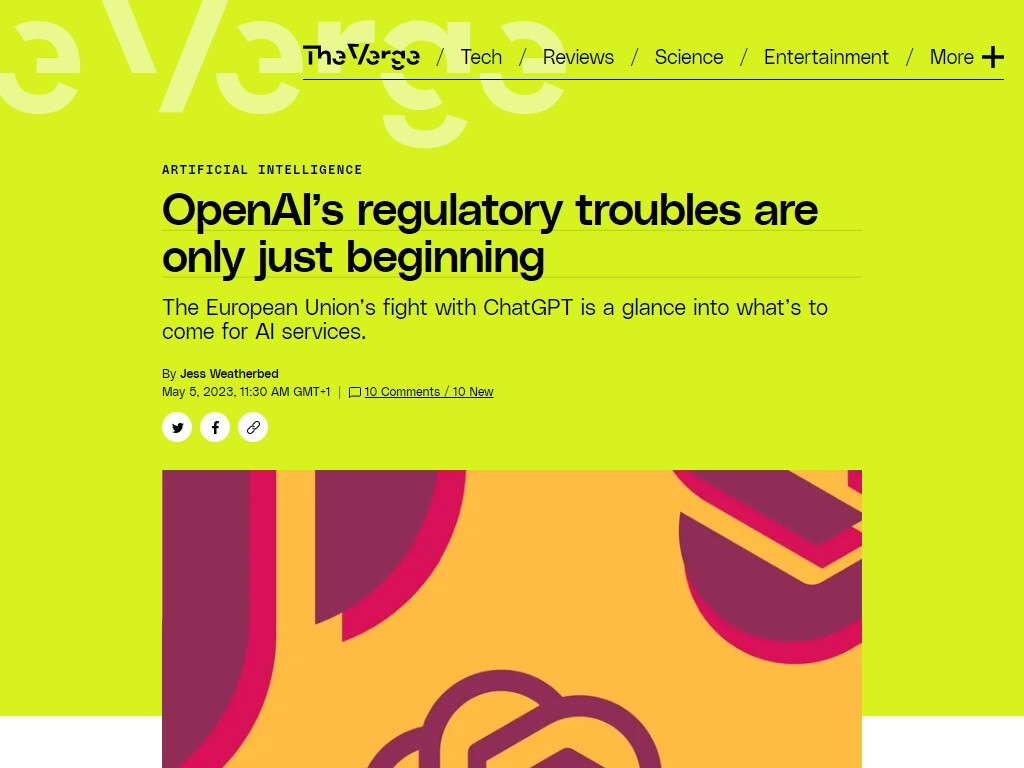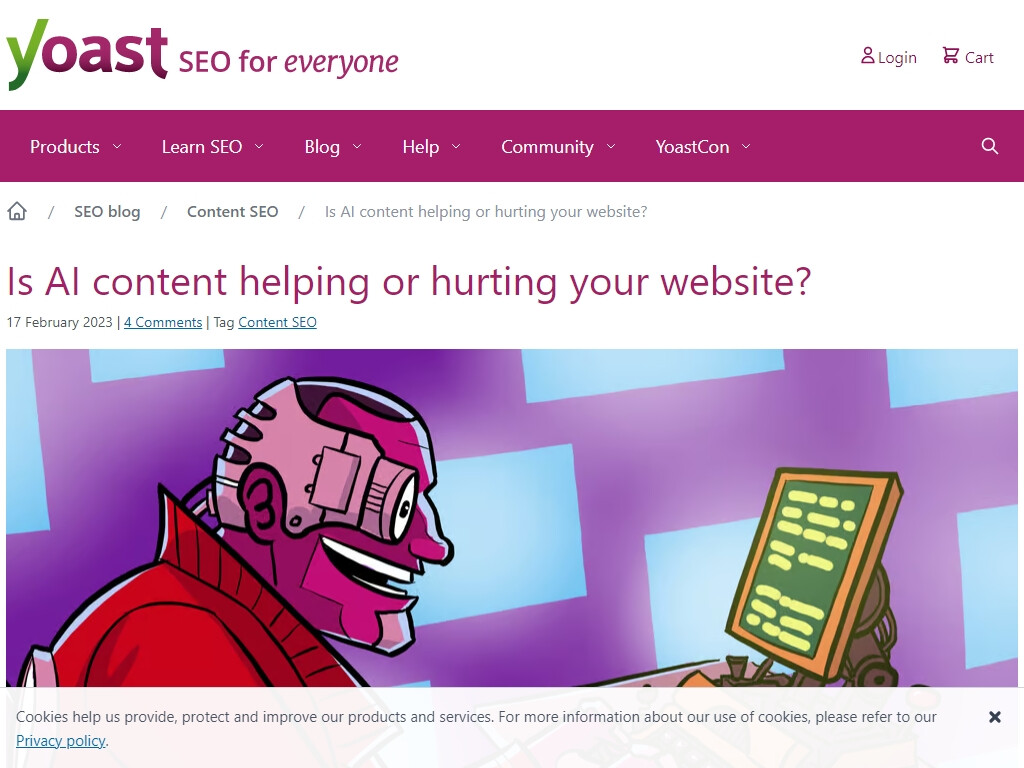Navigating the AI Regulatory Landscape: OpenAI’s ChatGPT and GDPR Compliance in Europe
As AI technologies continue to evolve and expand their reach, it's essential to understand the regulatory frameworks governing their use. OpenAI's ChatGPT, a powerful AI language model, transforms how we interact with and utilize AI. However, as it grows in popularity, the need to ensure compliance with GDPR and other European regulations becomes more pressing. The blog post will explore the challenges and implications of AI regulation in Europe and how OpenAI addresses these concerns.
OpenAI's ChatGPT and the GDPR Challenge
The General Data Protection Regulation (GDPR) is a comprehensive data protection framework that has reshaped how organizations handle personal data in the European Union. As OpenAI's ChatGPT gains traction in Europe, it faces the challenge of navigating these complex regulations to ensure compliance and protect user privacy.
Key Issues and Implications
- Data Privacy: GDPR emphasizes the need for organizations to protect user data and uphold privacy rights. OpenAI must ensure that ChatGPT processes user data responsibly, securely, and in compliance with GDPR requirements.
- Transparency: GDPR mandates that organizations provide clear and transparent information about their data processing activities. OpenAI must disclose how ChatGPT processes user data and explain any automated decision-making processes involved.
- Data Protection by Design: GDPR requires organizations to implement data protection principles from the design stage of a product or service. OpenAI must incorporate data protection measures into ChatGPT's development and ensure its ongoing compliance with GDPR.
- Cross-Border Data Transfers: ChatGPT may process data across borders as a global AI platform. OpenAI must navigate GDPR's strict guidelines on cross-border data transfers and ensure data protection standards are maintained throughout the data lifecycle.
OpenAI's Response and Future Outlook
OpenAI has acknowledged the importance of GDPR compliance and is committed to meeting its regulatory obligations. By working closely with European regulators, OpenAI aims to develop a comprehensive understanding of the GDPR framework and integrate data protection measures into ChatGPT's operations.
Organizations like OpenAI must remain vigilant and proactive in addressing regulatory challenges as AI technologies advance. OpenAI's commitment to GDPR compliance highlights the importance of responsible AI development and paves the way for a more privacy-focused future in AI innovation.
https://www.theverge.com/2023/5/5/23709833/openai-chatgpt-gdpr-ai-regulation-europe-eu-italy

